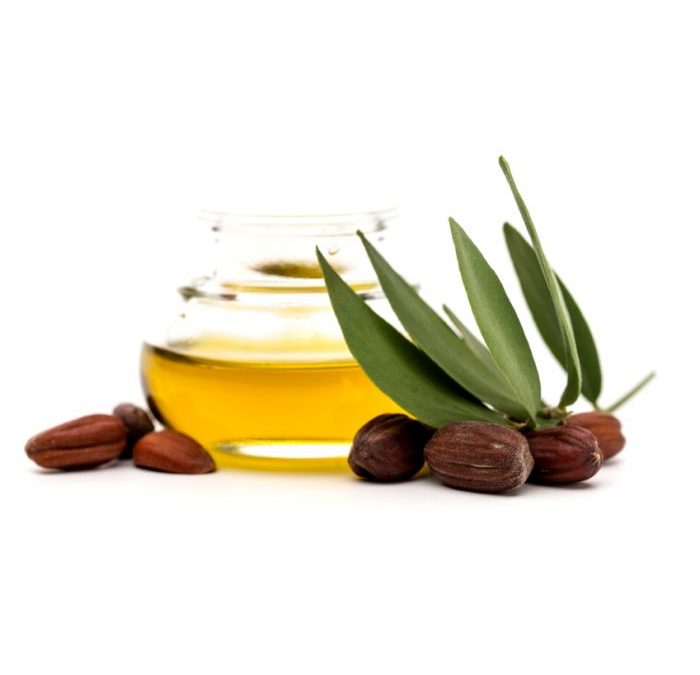1. WHAT IS JOJBA OIL?
Jojoba oil (Simmondsia chinensis) is a drought resistance perennial plant cultivated worldwide. It is known by many other names such as coffee nut, goat nut, goat berry, and lemon leaf to name a few. The seed of the jojoba plant is dark brown in color, like coffee
beans. Jojoba oil differs from other seed oils by the almost complete absence of glycerides, as it is composed of almost 98% pure waxes, making it more of a liquid wax, than oil. It contains wax esters, sterols, vitamins D and A, and a few triglycerides.
2. HOW DOES JOJOBA OIL WORK?
Jojoba oil is structurally like the natural sebum found on our skin with a high molecular weight and low viscosity and so it helps to soften the surface of the skin and reduce dryness and scaliness as well as reduce trans epidermal water loss without a greasy feel to the skin. It smoothens the skin, enhances the elasticity of the skin, and restores the skin’s natural shine. Extensive studies have been done on jojoba oil over the years and it has been found to have anti-inflammatory (through blockage of cyclooxygenase II and lipoxygenase pathways), antioxidant, anti-acne( by the liquid wax dissolving the sebum in the clogged follicle, penetrating the follicle and removing the comedome with subsequent clearing of the skin), skin barrier repair, and premature skin aging prevention properties, as well as aid in skin penetration of other ingredients in topical application. The unrefined, cold pressed version results in preservation of the antioxidants in the oil which are lost when the oil is refined.
3. “WHY” IS THIS IMPORTANT FOR YOU?
Using skin care products which have jojoba oil in them would aid in conditions where you have dry skin like eczema, acne, premature aging, and skin inflammation especially for those with sensitive skin who tend to have side effects from stronger products for the same skin conditions.
REFERENCES:
https://www.ncbi.nlm.nih.gov/pmc/articles/PMC5796020/
https://www.sciencedirect.com/science/article/abs/pii/0079683277900015?via%3D
ihub
https://www.ncbi.nlm.nih.gov/pmc/articles/PMC8197201/

